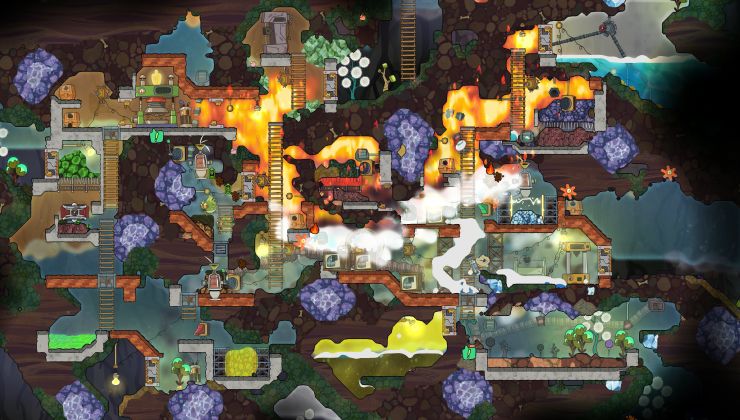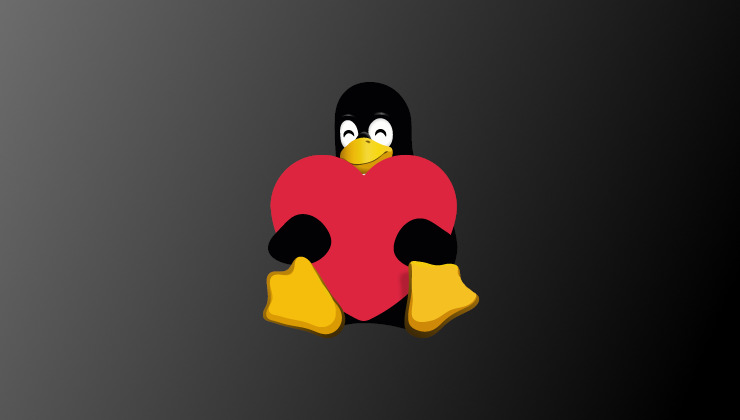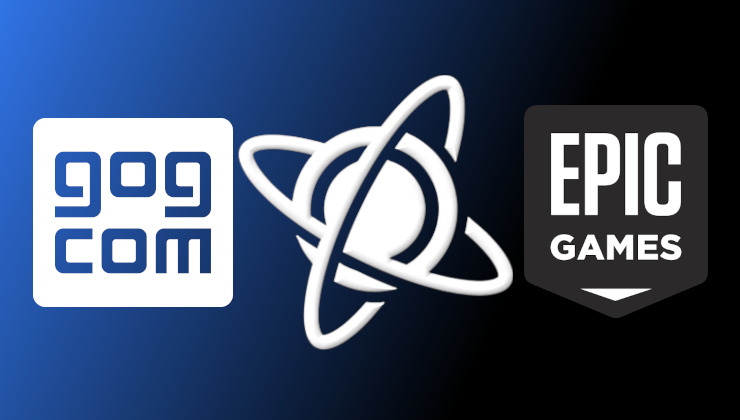While there's a huge focus on Flatpak and Flathub thanks to the Steam Deck shipping with it out of the box, Canonical on the other hand continue with their own Snap packaging and they have a Steam Snap in testing for Ubuntu (and other distros, since Snap also works elsewhere).
In a fresh introduction post on the Ubuntu Linux Discourse forum (thanks OMGUbuntu), it outlines how they're now actually "going all in on the gaming experience on Ubuntu and we’ve started building out a team dedicated to working on just that". Part of that is reducing the need for PPAs and other solutions, and their focus now is on Steam.
The call for testing has now begun on their Steam Snap package which gives you everything you need for Native Linux gaming and for Proton too. It's early days for the Steam Snap so expect issues but they said they will "iterate quickly, and respond to this feedback" on it.
On top of that we can expect more gaming on Ubuntu Linux improvements to come "such as providing easy ways to get more bleeding edge components like Mesa drivers, and even newer kernels and proprietary drivers" — that all sounds great to me.
It's not actually live yet but once it will be, I'll update the post here with instructions they give, which they will also post in the link above. Update: Canonical has now done an additional blog post, going over the instructions. Either install it from the website / Snap Store or via terminal: snap install steam --beta
With the blog post, Canonical once again reiterated their plan to improve Ubuntu gaming mentioning that "the Ubuntu Desktop team is getting down to work planning for the future, and improving the gaming experience features heavily in our priorities (and hiring plan!)". They go on to mention how "serious gamers" continue using Windows primarily, which we all know as Steam puts Linux at about 1% currently (see our Steam Tracker) but they hope by "improving the gaming experience, and the Steam experience in particular, we can ensure that Ubuntu can become a genuine daily driver for gamers".
apt install steamon any sane operating system without Ubuntu-only cruft.
Those aren't technical reasons. Those are resource reasons.I stopped using Ubuntu before it was cool to do so.That's a great turnaround from a few years ago, when the threatened removal of 32-bit libraries would have crippled the O/S from a gaming perspective.
A better gaming experience in what is still an incredibly popular "entry" distro is superb news.
You know what I think? Making a SNAP Steam is exactly the first step towards removal of the last few remaining 32 bit libraries in Ubuntu (the original plan was to remove ALL 32 bit libraries, but because of backlash, the final decision was to keep a few 32 bit libraries used by popular software). I mean think about it, Steam and Wine are the 2 most popular pieces of software that still require 32 bit dependencies. By making a SNAP Steam, Canonical will then be able to proceed removing those remaining 32 bit libraries (and also removing .deb Steam in the process). Regarding Wine, I heard it's also available as a Snap.
I'm surprised nobody here is asking himself the question what is even the benefit of having a SNAP Steam, when .deb Steam is working perfectly?
So to me it seems that in the case of creating a SNAP Steam, Canonical is just masquerading itself as "caring about gamers", but under the hood it's just part of the plan to remove the final remaining 32 bit libraries and push their SNAP garbage.
I'm so tired of Canonical's bull**** and so glad I've switched to Fedora after a few years of mainly using Ubuntu based distros.
Ha, they stopped being relevant to me when the changed their 'let's be Debian, with the latest Gnome and 6 month release cycles to match Gnome's purpose they had at the beginning.
I am positive their push for ditching 32bit support was because they figured if Apple could do it, why can't they? There is no technical reason for Ubuntu to do so, unlike for Apple as they knew they were moving toward ARM... pretty sad to see the amount of native mac games that won't run after Mojave.
Someone mentioned Arch ditching 32bit support? Pretty sure they have always had the separate multi architecture repo, similar to Debian needing to add it in.
There are actual programs that simply can't be ported to 64bit (or it would take some significant effort" so dropping it is the equivalent of trashing all that past work. Part of why there are software preservation groups these days.
Of course there are technical reasons for ditching 32-bit support (I'm a maintainer for the software my company distributes and I decided to ditch 32-bit support due to technical reasons). It takes time and resources to build an entire arch of your distribution, on top of which you have to provide actual support, for an arch where you have very few users. That Canonical reversed their decision when there was a backlash indicates to me that they simply didn't understand the need for 32-bit libs to support games, they obviously only thought that it was about running Ubuntu on 32-bit hardware.
Once Upon a time there was mandrake then it evolved mandriva company start to work with Microsoft money flowed very fluidly
Then the magic of success and beauty expires now there is no mandriva nor connectiva neither mandrake left as good as old.
And now same shit happening as cannonical and my lovely Ubuntu. First unity gone then gnome-shell pop and ruin my life and cooperating with Microsoft cannonical and Ubuntu fades of with stupid desicions and money oriented bullshidos.
So here we go again as looking New daily gaming driver while playing on Windows.
Same shit every 5-10 gear of any good linux distro
Once Upon a time there was mandrake then it evolved mandriva company start to work with Microsoft money flowed very fluidly
Then the magic of success and beauty expires now there is no mandriva nor connectiva neither mandrake left as good as old.
And now same shit happening as cannonical and my lovely Ubuntu. First unity gone then gnome-shell pop and ruin my life and cooperating with Microsoft cannonical and Ubuntu fades of with stupid desicions and money oriented bullshidos.
So here we go again as looking New daily gaming driver while playing on Windows.
Well... so I'm not sure how much Microsoft working with Canonical has much to do about any of it. Sure they were the first ones with official support for WSL. But there are quite a few official distribution supported versions for WSL now, including AlmaLinux.
Canonical has been going down their road of 'NIH' for a long time. And for a long time they've failed at it (the aforementioned Unity was originally a fork of gnome anyhow).
Pretty sure Ubuntu has decided their Bug #1 no longer matters, and they should concentrate on the server and OpenStack. That is where the money is at.
while(is_alive(canonical))
{
do_somthing_on_our_own(rand());
try_to_shove_it_everywhere();
see_that_everyone_else_is_using_smthg_else();
push_on();
give_up();
leave_an_ugly_mess_for_others_to_clean_up();
}Maybe it would be time to break out of that loop.
Why, oh why ... The flatpak'd steam has been around for a couple years already, with flatpak 1.11 and up it is now fully usable, so why would they go and add their snap now ? Why not just update their flatpak in base distro, and use that ? SteamOS/Steam deck is also going all in on flatpak. So why can´t they just learn to give up ? They iterated over and over again in that canonical cycle (upstart, unity ...)
while(is_alive(canonical))
{
do_somthing_on_our_own(rand());
try_to_shove_it_everywhere();
see_that_everyone_else_is_using_smthg_else();
push_on();
give_up();
leave_an_ugly_mess_for_others_to_clean_up();
}
Maybe it would be time to break out of that loop.
You should be more precise: upstart was introduced by Canonical in 2006 - years before systemd was even a thing. At some point even Fedora used it.
Snap intends to do (quite) the same thing as flatpak but has its advantages and disadvantages. And snap is Canonical's thing. Just as quite a few other technologies are Red Hat's thing (though Lennart Poettering frequently takes the blame and not his employee). Snap was introduced in 2015/2016 pretty much at exactly the same time as flatpak. The situation is NOT that there was flatpak and THEN Canonical decided to do their own thing. It has been pretty much the same situation with Mir vs. Wayland or Unity vs. Gnome Shell. (Also I am not aware who these others are, who have to clean up the mess - when they ditched Unity... there was nothing to "clean up".) Also: These decisions are obviously not rand(), but they seem to address pressing problems. Because otherwise there wouldn't be competing solutions emerging at pretty much the same time.
I wonder how ppl would have dealt with the deb-vs-rpm situation if social media would have been a thing back in the days...
Why, oh why ... The flatpak'd steam has been around for a couple years already, with flatpak 1.11 and up it is now fully usable, so why would they go and add their snap now ? Why not just update their flatpak in base distro, and use that ? SteamOS/Steam deck is also going all in on flatpak. So why can´t they just learn to give up ? They iterated over and over again in that canonical cycle (upstart, unity ...)
while(is_alive(canonical))
{
do_somthing_on_our_own(rand());
try_to_shove_it_everywhere();
see_that_everyone_else_is_using_smthg_else();
push_on();
give_up();
leave_an_ugly_mess_for_others_to_clean_up();
}
Maybe it would be time to break out of that loop.
You should be more precise: upstart was introduced by Canonical in 2006 - years before systemd was even a thing. At some point even Fedora used it.
Snap intends to do (quite) the same thing as flatpak but has its advantages and disadvantages. And snap is Canonical's thing. Just as quite a few other technologies are Red Hat's thing (though Lennart Poettering frequently takes the blame and not his employee). Snap was introduced in 2015/2016 pretty much at exactly the same time as flatpak. The situation is NOT that there was flatpak and THEN Canonical decided to do their own thing. It has been pretty much the same situation with Mir vs. Wayland or Unity vs. Gnome Shell. (Also I am not aware who these others are, who have to clean up the mess - when they ditched Unity... there was nothing to "clean up".) Also: These decisions are obviously not rand(), but they seem to address pressing problems. Because otherwise there wouldn't be competing solutions emerging at pretty much the same time.
I wonder how ppl would have dealt with the deb-vs-rpm situation if social media would have been a thing back in the days...
For the "do_something_on_your_own" I indeed do not imply that there is already a competitor in itself. Indeed, upstart came first, and snap more or less at the same time.
My meaning is more that they always do it on their own, there's hardly ever a community going around, they rarely, if ever, involve other distributions, and so on and so forth. Snap is the pinnacle of that, where the server side is even proprietary and fully centralized to them - I think they alleviated some of that, but not sure at all, and it clearly wasn't used by anyone -.
For Unity, indeed it was fairly clean. For upstart, you still have to support their service model, and/or skim through tutorials proposing their solutions, with the compatibility in the hand of others. For Ubuntu phone it's now community maintained. So is the original Mir for those that actually still need it. I agree it might not be the absolute worst. For snap though, I expect we'll lose a lot of apps once they close the service.
For upstart, even when systemd clearly came out as the winner, both technically and community wise, they still tried to shove it for quite some time. Mir ? same. For snap, they are doing the same now too. Flatpak is more widely adopted (in distros), is getting pushed by Valve too, has quite a few technical advantages (better deduplication, fully open, clearer source and runtime management) for it relevant purpose (i.e. installing a kernel via snap is not an advantage, as it's by definition fully unconfined, if anything having grey areas in term of what's sandboxed and what is not is more disadvantage to me) and is overall gaining traction. But no, instead of contributing to the already existing solution - steam flatpak here - they decided to shove their own stuff once again.
As for RPM vs deb, well it was a heated topic at that time already...
Hmm... Interesting development...Steam as a snap package? That is very unwelcome - I hate applications updating behind my back. Mozilla provide an official Firefox PPA, but I hope Canonical don't mess with the Steam APT package.
The Mozilla Team PPA is not by Mozilla, it's by a voluntary group inside Canonical (or at least they where some years ago). Mozilla are the ones that build the snap for Ubuntu.
https://twitter.com/kenvandine/status/1520787381770727427?s=20&t=gShwlPo355NEHNW6p8U2nw
The thing with upstart vs systemd is that systemd manages a whole lot of other stuff over what upstart can do. For me personally, I think systemd is fantastic. Sure is easier to make .service files than it was to make init scripts!Why, oh why ... The flatpak'd steam has been around for a couple years already, with flatpak 1.11 and up it is now fully usable, so why would they go and add their snap now ? Why not just update their flatpak in base distro, and use that ? SteamOS/Steam deck is also going all in on flatpak. So why can´t they just learn to give up ? They iterated over and over again in that canonical cycle (upstart, unity ...)
while(is_alive(canonical))
{
do_somthing_on_our_own(rand());
try_to_shove_it_everywhere();
see_that_everyone_else_is_using_smthg_else();
push_on();
give_up();
leave_an_ugly_mess_for_others_to_clean_up();
}
Maybe it would be time to break out of that loop.
You should be more precise: upstart was introduced by Canonical in 2006 - years before systemd was even a thing. At some point even Fedora used it.
Snap intends to do (quite) the same thing as flatpak but has its advantages and disadvantages. And snap is Canonical's thing. Just as quite a few other technologies are Red Hat's thing (though Lennart Poettering frequently takes the blame and not his employee). Snap was introduced in 2015/2016 pretty much at exactly the same time as flatpak. The situation is NOT that there was flatpak and THEN Canonical decided to do their own thing. It has been pretty much the same situation with Mir vs. Wayland or Unity vs. Gnome Shell. (Also I am not aware who these others are, who have to clean up the mess - when they ditched Unity... there was nothing to "clean up".) Also: These decisions are obviously not rand(), but they seem to address pressing problems. Because otherwise there wouldn't be competing solutions emerging at pretty much the same time.
I wonder how ppl would have dealt with the deb-vs-rpm situation if social media would have been a thing back in the days...
For the "do_something_on_your_own" I indeed do not imply that there is already a competitor in itself. Indeed, upstart came first, and snap more or less at the same time.
My meaning is more that they always do it on their own, there's hardly ever a community going around, they rarely, if ever, involve other distributions, and so on and so forth. Snap is the pinnacle of that, where the server side is even proprietary and fully centralized to them - I think they alleviated some of that, but not sure at all, and it clearly wasn't used by anyone -.
For Unity, indeed it was fairly clean. For upstart, you still have to support their service model, and/or skim through tutorials proposing their solutions, with the compatibility in the hand of others. For Ubuntu phone it's now community maintained. So is the original Mir for those that actually still need it. I agree it might not be the absolute worst. For snap though, I expect we'll lose a lot of apps once they close the service.
For upstart, even when systemd clearly came out as the winner, both technically and community wise, they still tried to shove it for quite some time. Mir ? same. For snap, they are doing the same now too. Flatpak is more widely adopted (in distros), is getting pushed by Valve too, has quite a few technical advantages (better deduplication, fully open, clearer source and runtime management) for it relevant purpose (i.e. installing a kernel via snap is not an advantage, as it's by definition fully unconfined, if anything having grey areas in term of what's sandboxed and what is not is more disadvantage to me) and is overall gaining traction. But no, instead of contributing to the already existing solution - steam flatpak here - they decided to shove their own stuff once again.
As for RPM vs deb, well it was a heated topic at that time already...
Redhat has huge amounts of backing from other corporations for the projects they start up, so pretty much what they start working on because more or less standard across other distributions. Mostly because they open source everything and keep putting more money into open source projects. The last few things Canonical have done have been kept in house, and with the license that a lot of people that would otherwise work on their projects, don't because it all essentially will end up being owned by Canonical. I was 100% Pro Ubuntu until they started pushing Unity over Gnome. And diverging more and more from Debian. At this point they're just another distro in a pile of many.
Those aren't technical reasons. Those are resource reasons.I stopped using Ubuntu before it was cool to do so.That's a great turnaround from a few years ago, when the threatened removal of 32-bit libraries would have crippled the O/S from a gaming perspective.
A better gaming experience in what is still an incredibly popular "entry" distro is superb news.
You know what I think? Making a SNAP Steam is exactly the first step towards removal of the last few remaining 32 bit libraries in Ubuntu (the original plan was to remove ALL 32 bit libraries, but because of backlash, the final decision was to keep a few 32 bit libraries used by popular software). I mean think about it, Steam and Wine are the 2 most popular pieces of software that still require 32 bit dependencies. By making a SNAP Steam, Canonical will then be able to proceed removing those remaining 32 bit libraries (and also removing .deb Steam in the process). Regarding Wine, I heard it's also available as a Snap.
I'm surprised nobody here is asking himself the question what is even the benefit of having a SNAP Steam, when .deb Steam is working perfectly?
So to me it seems that in the case of creating a SNAP Steam, Canonical is just masquerading itself as "caring about gamers", but under the hood it's just part of the plan to remove the final remaining 32 bit libraries and push their SNAP garbage.
I'm so tired of Canonical's bull**** and so glad I've switched to Fedora after a few years of mainly using Ubuntu based distros.
Ha, they stopped being relevant to me when the changed their 'let's be Debian, with the latest Gnome and 6 month release cycles to match Gnome's purpose they had at the beginning.
I am positive their push for ditching 32bit support was because they figured if Apple could do it, why can't they? There is no technical reason for Ubuntu to do so, unlike for Apple as they knew they were moving toward ARM... pretty sad to see the amount of native mac games that won't run after Mojave.
Someone mentioned Arch ditching 32bit support? Pretty sure they have always had the separate multi architecture repo, similar to Debian needing to add it in.
There are actual programs that simply can't be ported to 64bit (or it would take some significant effort" so dropping it is the equivalent of trashing all that past work. Part of why there are software preservation groups these days.
Of course there are technical reasons for ditching 32-bit support (I'm a maintainer for the software my company distributes and I decided to ditch 32-bit support due to technical reasons). It takes time and resources to build an entire arch of your distribution, on top of which you have to provide actual support, for an arch where you have very few users. That Canonical reversed their decision when there was a backlash indicates to me that they simply didn't understand the need for 32-bit libs to support games, they obviously only thought that it was about running Ubuntu on 32-bit hardware.
True, got me there, does it matter though? The point I was trying to make is that they had reasons which was not "let's screw gamers and Steam".
Last edited by F.Ultra on 2 May 2022 at 12:10 am UTC
For the "do_something_on_your_own" I indeed do not imply that there is already a competitor in itself. Indeed, upstart came first, and snap more or less at the same time.This is incredibly disingenous. Sure, Snap's backend is proprietary, but in practical terms, so is Flatpak's backend - everyone uses Flathub (I'm aware a couple of distros do host their own instance - but they could do so with snaps too). Constantly banging on about "ooh, but the backend is proprietary" is just noise. GitHub is a proprietary back-end, but very few developers moved away from it when MS moved in (despite the additional threat of co-pilot). We live in a weird world when Linux users are giving MS a pass that they won't hand out to Canonical.
My meaning is more that they always do it on their own, there's hardly ever a community going around, they rarely, if ever, involve other distributions, and so on and so forth. Snap is the pinnacle of that, where the server side is even proprietary and fully centralized to them - I think they alleviated some of that, but not sure at all, and it clearly wasn't used by anyone -.
What I love about Canonical is that when they see a problem, they try to push patches upstream, but if those patches are rejected (e.g. Unity & Mir), they create their way around the problem. This is what Linux is. This is what makes Linux so special. Fork! Be unique! 20+ Desktop Environments! 40+ media players! 10+ init systems! 20+ package managers! 40+ (easily) file systems! I could go on - shells, browsers, file managers, calculators, window managers, programming languages. They all exist because someone said "I can do this fundamentally better" and whether they were right or wrong, I'm here for it.
Weirdly though, when Canonical do this, suddenly it's "they're not collaborating", or they suffer from "not invented here" syndrome.
Drives me nuts, just so much hypocrisy.
Weirdly though, when Canonical do this, suddenly it's "they're not collaborating", or they suffer from "not invented here" syndrome.
Maybe because they are not collaborating? Microsoft has upstreamed more code to the Linux kernel than Canonical has, for example.
Instead of pushing Wayland forward, they create Mir. When Gnome-shell first started out, instead of adding some coders to the pool, they decided to do their own thing with Unity, etc. They keep claiming they can do it better / faster, when they should have treated these core components as a community and pitched in. They fork because they want to be THE Linux Distro. But instead all they do is divide people.
So! Bloody! True!For the "do_something_on_your_own" I indeed do not imply that there is already a competitor in itself. Indeed, upstart came first, and snap more or less at the same time.This is incredibly disingenous. Sure, Snap's backend is proprietary, but in practical terms, so is Flatpak's backend - everyone uses Flathub (I'm aware a couple of distros do host their own instance - but they could do so with snaps too). Constantly banging on about "ooh, but the backend is proprietary" is just noise. GitHub is a proprietary back-end, but very few developers moved away from it when MS moved in (despite the additional threat of co-pilot). We live in a weird world when Linux users are giving MS a pass that they won't hand out to Canonical.
My meaning is more that they always do it on their own, there's hardly ever a community going around, they rarely, if ever, involve other distributions, and so on and so forth. Snap is the pinnacle of that, where the server side is even proprietary and fully centralized to them - I think they alleviated some of that, but not sure at all, and it clearly wasn't used by anyone -.
What I love about Canonical is that when they see a problem, they try to push patches upstream, but if those patches are rejected (e.g. Unity & Mir), they create their way around the problem. This is what Linux is. This is what makes Linux so special. Fork! Be unique! [20+ Desktop Environments](https://wiki.archlinux.org/title/desktop_environment#List_of_desktop_environments)! [40+ media players](https://en.wikipedia.org/wiki/Category:Linux_media_players)! [10+ init systems](https://wiki.gentoo.org/wiki/Comparison_of_init_systems)! [20+ package managers](https://wiki.gentoo.org/wiki/Comparison_of_init_systems)! [40+ (easily) file systems](https://en.wikipedia.org/wiki/List_of_file_systems)! I could go on - shells, browsers, file managers, calculators, window managers, programming languages. They all exist because someone said "I can do this fundamentally better" and whether they were right or wrong, I'm here for it.
Weirdly though, when Canonical do this, suddenly it's "they're not collaborating", or they suffer from "not invented here" syndrome.
Drives me nuts, just so much hypocrisy.
Thank you
Weirdly though, when Canonical do this, suddenly it's "they're not collaborating", or they suffer from "not invented here" syndrome.
Maybe because they are not collaborating? Microsoft has upstreamed more code to the Linux kernel than Canonical has, for example.
U serious? Comparing a company with 180.000 employees to Canonical? Besides, MS pushes upstream whatever fits their very own agenda (which is perfectly fine). And I assume MS commits automatically translate to many lines of code.
Instead of pushing Wayland forward, they create Mir. When Gnome-shell first started out, instead of adding some coders to the pool, they decided to do their own thing with Unity, etc. They keep claiming they can do it better / faster, when they should have treated these core components as a community and pitched in.
Since Wayland/X11 replaced Mir in 2017 AND the alleged lack of commitment and upstream activity by Canonical: Would it had made ANY difference? And Wayland way is still NOT the default protocol/server/compositor on many distributions.
As far as Gnome Shell goes: Are you equally vocal towards the Cinammon developers? Or pretty much all other DEs out there aside from maybe Gnome and KDE? Gnome Shell had it's initial release in April 2011, Unity about one year earlier. So why should Canonical have abandoned it? Why did everyone "embrace" the Red Hat alternative (apart from the Cinnamon and MATE people)? (Do I get the "t'was the licensing" answer?)
But instead all they do is divide people.
No. Actually not. I'd say the majority of Linux users don't give a shit. I never felt the urge to pop up in some Red Hat/Fedora forums and bash away at flatpak. I use whatever I consider useful (and which gets its fair share of support) - and I hope I share this sentiment with most other Linux users. BTW: Did you blame Red Hat for "dividing people" because of systemd? Are the people behind Cinnamon dividing people?
Just to be clear: I really couldn't care less, what DEs, packaging system, init system, file system, whatever people use. Hell, I even talk to Windows folk. But whenever Canonical "intends to do something" (let alone does something) people get all mad as if their very existence depends on a distribution they presumably don't even use. That's just... tiring.
Drives me nuts, just so much hypocrisy.
Spot on. Sorry for pretty much just re-iterating your point in my post a second time.
Wow, the kernel argument, eh? Haven't heard that in years! Canonical aren't kernel developers - the only reason MS contributes is to ensure Linux runs on Azure. Meanwhile, outside of kernel commits, yes, they collaborated so, so much - they just got pushed out of a lot of it.Weirdly though, when Canonical do this, suddenly it's "they're not collaborating", or they suffer from "not invented here" syndrome.Maybe because they are not collaborating? Microsoft has upstreamed more code to the Linux kernel than Canonical has, for example.
Instead of pushing Wayland forward, they create Mir. When Gnome-shell first started out, instead of adding some coders to the pool, they decided to do their own thing with Unity, etc. They keep claiming they can do it better / faster, when they should have treated these core components as a community and pitched in. They fork because they want to be THE Linux Distro. But instead all they do is divide people.
Unity - upstream patches to Gnome were straight out rejected, and their vision for widgets on the top bar rejected (ironic, since, yep, client-side decorations are a thing now). That vision precluded them using extensions, hence Unity, where they made real on other promises like global menu and HUD.
Mir - they needed certain features for their display manager that would fit into their requirements around phone interfaces. Surprise - the Wayland devs rejected their requests. Mir was born. Wayland devs cried like babies for literally years over this decision. Infuriating.
There are other examples. The discussions are generally public and I lived through them. I honestly don't want to regurgitate them again, but people keep jumping down Canonicals throat over this stuff and it's simply ignorant to place all that "blame" at Canonical's door. Sure, Canonical weren't always the good guy in this stuff, but it's regularly and unfairly overblown to be all their fault, they never collaborate, it's all about them, blah blah.
They fork because they want to be THE Linux Distro. But instead all they do is divide people.
Eh? They ARE "the" linux distro. They have been for decades. THEY STILL ARE, despite quite a few mis-steps in recent years and some momentum around Arch. They don't divide people - they have, by far, the biggest community in the Linux "world". For a long time, people argued (myself included, although I don't really feel that way any more) that we should stop referring to Linux and start referring to Ubuntu. Ubuntu, for well over a decade, was just that synonymous with Linux as a whole. Well, desktop Linux anyway. Things like OMGUbuntu! and Ask Ubuntu, they happened for a reason.
Maybe that will change, but regardless of what distro we use here, as experienced players of games on Linux, almost everyone here would recommend Ubuntu, or a derivative like Mint or Pop, to a first-time user. Why? Because it's still the defacto standard. And they didn't get that way by being divisive. Quite the opposite. It's just that certain loud voices didn't like that they weren't number one any more.
Drives me nuts, just so much hypocrisy.
Spot on. Sorry for pretty much just re-iterating your point in my post a second time.
Too late! I went on a big rant! Goddamit!
Eh? They ARE "the" linux distro. They have been for decades. THEY STILL ARE, despite quite a few mis-steps in recent years and some momentum around Arch. They don't divide people - they have, by far, the biggest community in the Linux "world". For a long time, people argued (myself included, although I don't really feel that way any more) that we should stop referring to Linux and start referring to Ubuntu.OK, that, that right there, strikes me as a reason some people might have started to get shirty about Ubuntu, no matter what the rights and wrongs of Mir and Unity and whatnot.
And they didn't get that way by being divisive.Nope, they got that way by making a better Debian release. Which then became a fork and they did their own thing, that then irritates people as it breaks some compatibility. But that has been the history of Debian. Someone makes a distro based on it, it starts out great, but because they get separate repositories, and try their hardest to keep in sync, but then eventually they can't keep the customizations up, and they die because it becomes too much effort for the developers.
Ubuntu has only survived this long because of Mark Shuttleworth having money.
It still isn't 'the' Linux distro, as there is no such thing. A lot of people don't even recommend it anymore. I now recommend Pop_OS! Or if they want to give me the time to set it up for them, I recommend Debian Stable.
Fedora 36 is the first Linux release that actually solves input delay to be on pair with windows. They did this unintentionaly as it was an issue related to touchpads. I am extremely happy by this fix as FINALY FINALY Linux is starting to move forward instead of just doing sidesteps and go anywhere.Sounds more like a bug to me that you had there.
I've been gaming on Linux since years, including very fast-paced games (FPS) on both Ubuntu- & Arch-based distros and I've yet to notice any input lag (excluding lag that is caused by the CPU being overburdened).
I'm very sensitive to inputlag because my main system to play games is windows and DS4 have very little inputlag on it. When testing it on any Linux de first thing evident is that DS4 isn't as responsive. Fedora 36 bring parity to that.
Also, everytime I post about this problem I receave a lot of comments that nobudy have this problem or it's a bug in my side. I see this as the big problem Linux have because it needs someone big to make average user complams to reach devs. Otherwise it'll be ignored... This "fix" was a side effect, but the merit is still there.









 How to play games from GOG and Epic Games on Linux, SteamOS and Steam Deck
How to play games from GOG and Epic Games on Linux, SteamOS and Steam Deck How to get Battlefield 3 and Battlefield 4 online working on Linux, SteamOS, Steam Deck
How to get Battlefield 3 and Battlefield 4 online working on Linux, SteamOS, Steam Deck